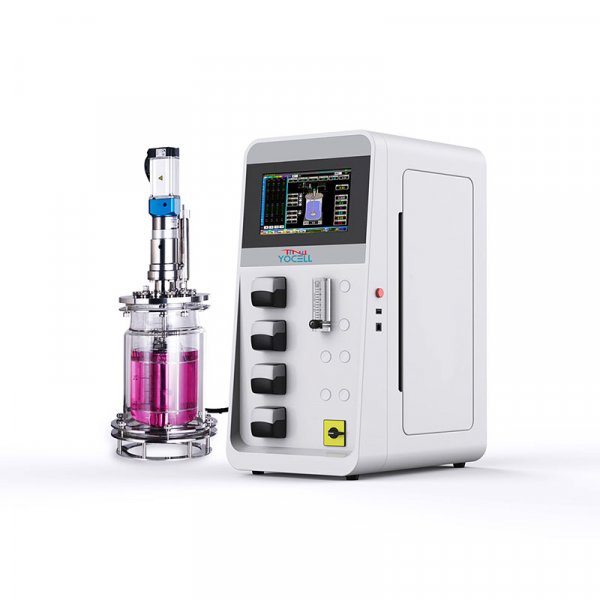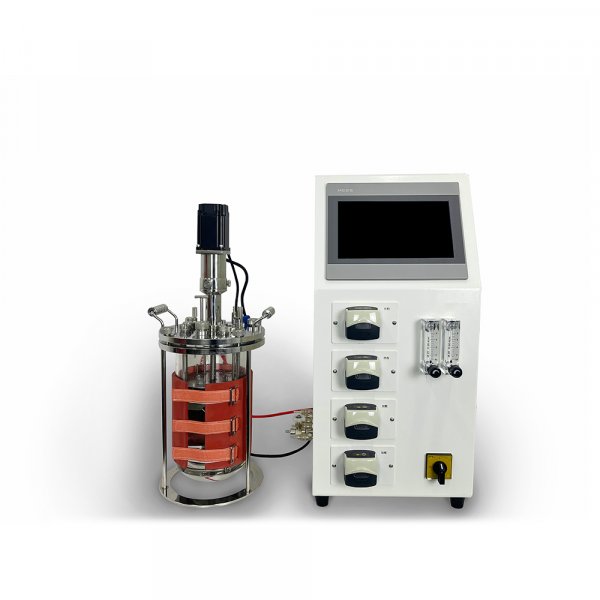The use of Single-Use Systems (SUS) in biopharmaceutical manufacturing has changed dramatically over the years. While we have seen a steady increase in the acceptance of SUS over the past few decades, COVID has created an environment that has accelerated the shift away from fixed stainless steel bioprocesses. In fact, since 2017, the average volume of the largest bioreactors used in plants worldwide has dropped from 4,718 L to 3,664 L today.21 Early in the 21st century, improvements in large-scale receivers and aseptic connectors facilitated single-use production, allowing aseptic fluid systems to be connected more seamlessly while maintaining their sterility. Although their use in bioproduction was low, their introduction, along with larger, more robust biocontainers, led to the creation of the innovative disposable vibrating bag bioreactor. This was the original form of the disposable bioreactor. During this time, the Bioprocess Systems Alliance (BPSA) played a vital role in promoting best practices in implementing disposable technology. Due to a number of factors, disposable bioreactors have been adopted at different stages of bioproduction. Single-use bioreactors have also spawned the need for other SUS, including:
-Sensors.
- Chromatography systems
-Sampling systems
-Fermenters
- Tangential Flow Filtration (TFF) systems.
The early 2000s saw a surge in the adoption of disposable bioreactors due to low pre-market penetration. As mentioned earlier, the COVID-19 outbreak was a pivotal moment that highlighted the need for rapid, scalable production processes in the biopharmaceutical industry. The urgent global need for vaccines requires production solutions that can be implemented quickly. Disposable bioreactors, bags and tubing played a key role in meeting this need, allowing these companies to rapidly scale up production without the delays associated with cleaning and validating traditional stainless steel systems. However, the rapid growth of disposable bioreactors has come to a standstill in recent years. growth rates of between 1.6 per cent and 3.5 per cent by 2024 (CAGR). This suggests that their use in the industry is still growing, but at a much slower rate than before.
Advantages of implementing new SUS in bioprocesses
Our annual report measures how disposable technologies have transformed bioprocessing over the past 21 years. Most of these factors are widely recognised by the industry and focus on improving productivity and reducing costs. These advantages have become increasingly apparent over the years, leading to high market penetration. Some of these advantages include:
-Rapid Bioprocessing: SUS reduces processing time, which is critical to accelerating the development and production of biopharmaceuticals. Its quick setup feature allows for rapid adaptation to market changes.
- Cost Savings: By minimising time to market, SUS helps to reduce operating expenses. The disposable nature of these systems eliminates the need for extensive cleaning and validation, saving labour and materials.
- Adaptability/Scalability: SUS capacity can be quickly adjusted to market demand. This flexibility is especially beneficial for small-scale or pilot production, and facilitates a smooth transition from R&D to large-scale production.
- Low risk of contamination: The disposable elements of SUS significantly reduce the risk of cross-contamination, allowing multiple products to be produced in the same facility. In addition, SUS simplifies contamination control and reduces the need for stringent quality checks, testing and documentation.
-Lower facility costs: Facilities using SUS can be smaller and more economical to build and maintain. These systems are easier to implement, require less validation, and can be converted more quickly, resulting in overall operational efficiencies.
As the industry evolves, the need for efficient, cost-effective, high-quality production solutions is driving the adoption of SUS. For example, disposable bags (87.6%), fittings and clamps (87.6%), and disposable lines (86.6%) are used in more than 85% of all facilities in 2024. 32.3% of survey respondents highlighted SUS costs as the top area they would like suppliers to focus on. Other areas of focus related to SUS include SUS bags, fittings (26.3%) and disposable control systems (18.0%).
Looking ahead, several trends are likely to influence the continued development of disposable systems in biopharmaceutical manufacturing. Innovations in materials science are driving the development of stronger, more versatile disposable components, such as gamma-stabilised and autoclavable materials, to improve durability and functionality. In addition, the integration of disposable systems with digital monitoring and control systems is becoming more common, allowing real-time monitoring of critical parameters and improving process control and product quality. The adoption of disposable systems is also expanding from traditional cell culture and fermentation processes to downstream processes such as filtration and chromatography. With the advancement of SUS, the bioprocess industry is focusing on modular bioprocess units. These systems feature connectable ‘lightweight’ cleanroom or isolator units that can be quickly assembled and put into service in weeks or months, offering similar benefits to SUS. The concept of ‘plug and play’ factories is gaining popularity, where entire production lines can be easily replicated. Leading bioprocess companies are expanding modular bioprocess units to integrate SUS into portable, stand-alone units, trailers or cleanrooms. In these setups, most of the equipment in the unit is designed for single-use equipment. Full SUS modular bioprocess units are particularly attractive for applications such as pandemic vaccine production, especially when
-an urgent and rapid response is required.
-Demand is expected in the short term.
-High safety standards are necessary.
-Rapid setup of on-site facilities is required.
With biotechnology changing at a rapid pace, every innovation heralds another leap forward in the life sciences. Yocell offers integrated, aseptic, plug-and-play bioreactors that not only dramatically shorten experimental preparation time, but also ensure the highest standards of biosafety while dramatically improving the stability and reproducibility of experimental results. reproducibility of results while ensuring the highest standards of biosafety. At the same time, its flexible design allows the user to quickly adjust the scale of experiments according to the needs of experiments, from small-scale laboratory experiments to large-scale industrial production, to meet the diversified needs of scientific research and production.



